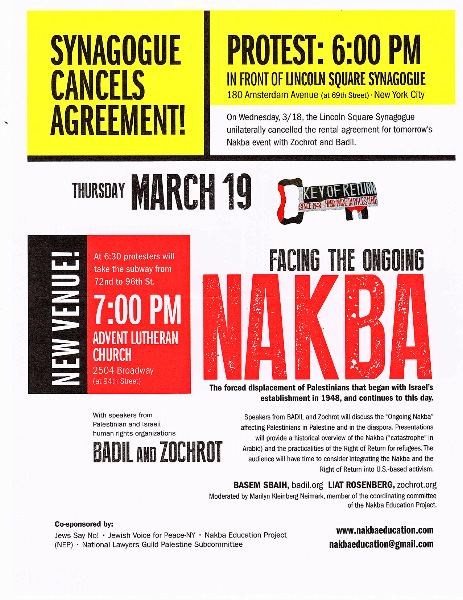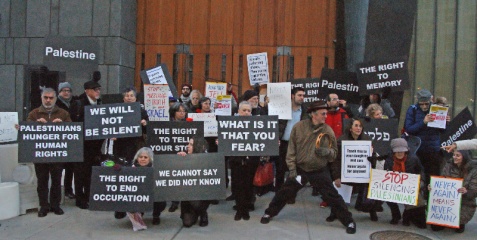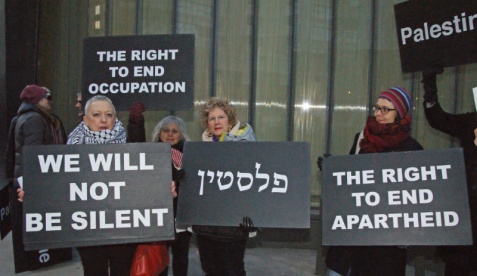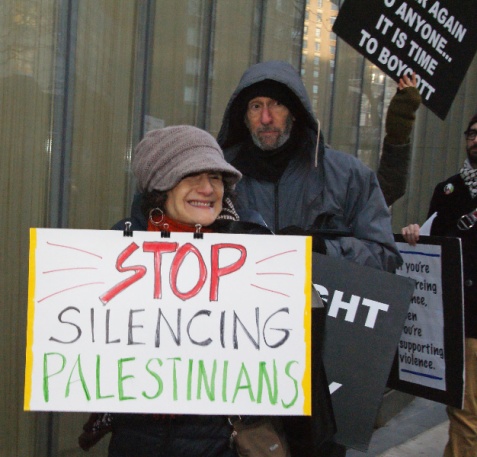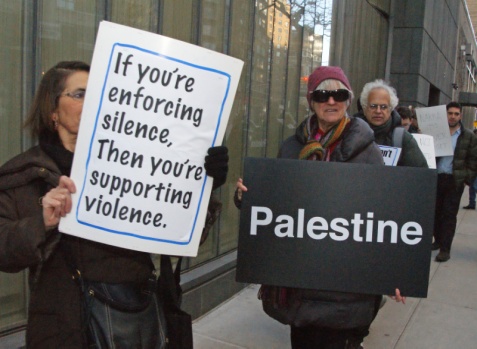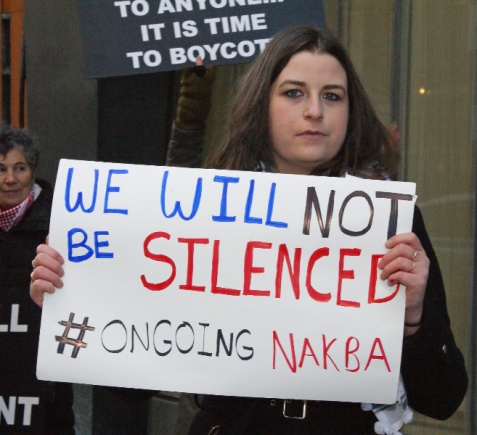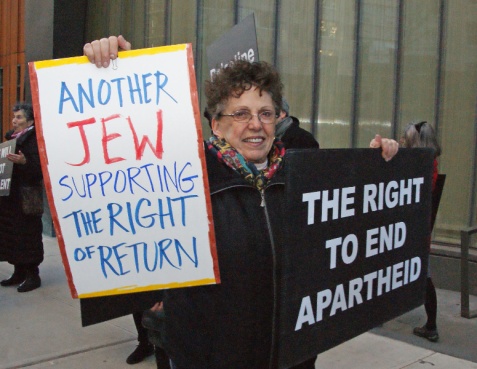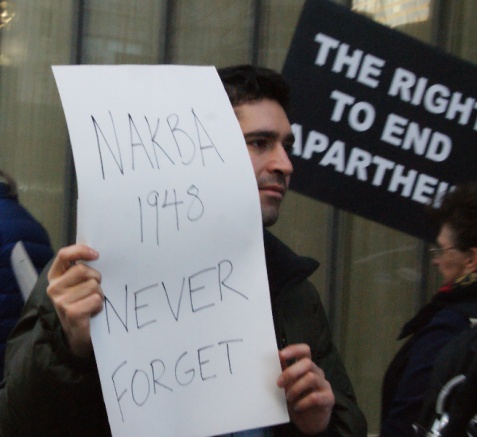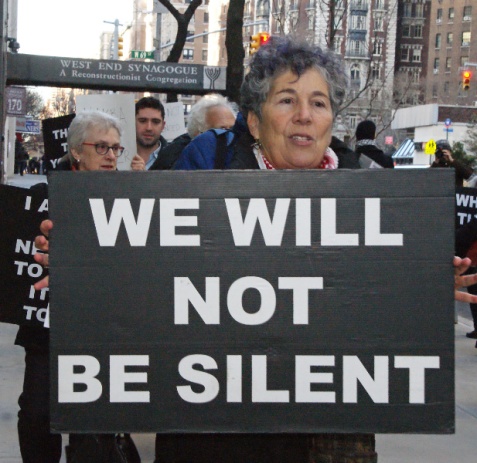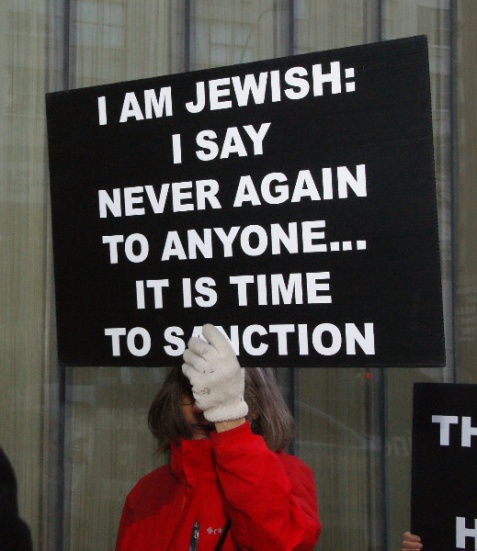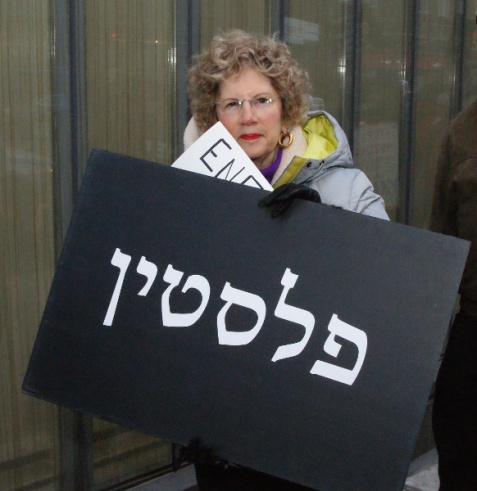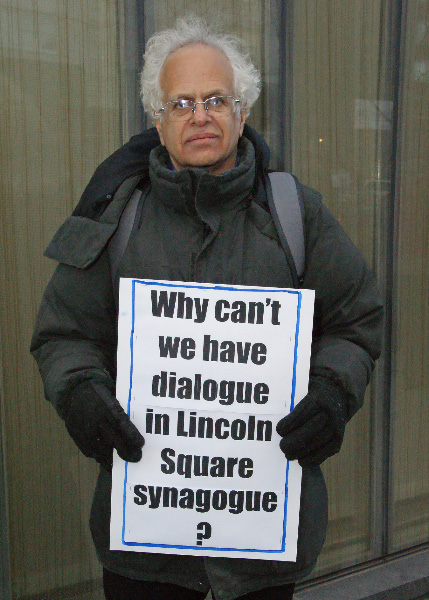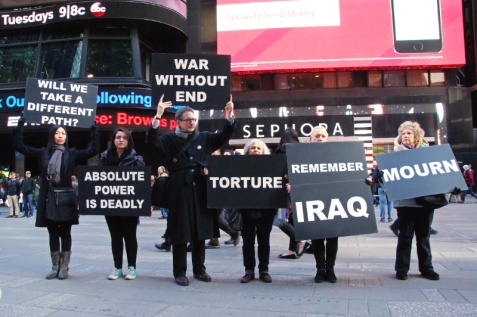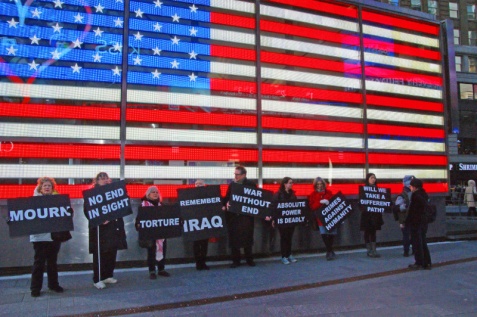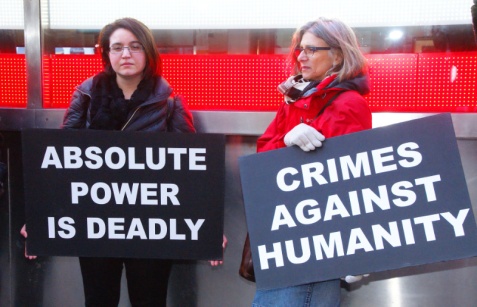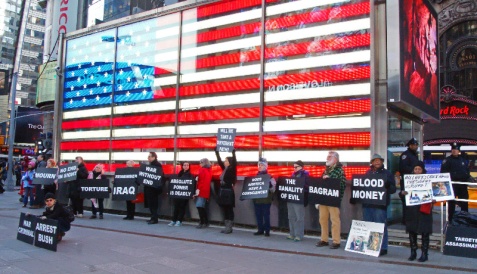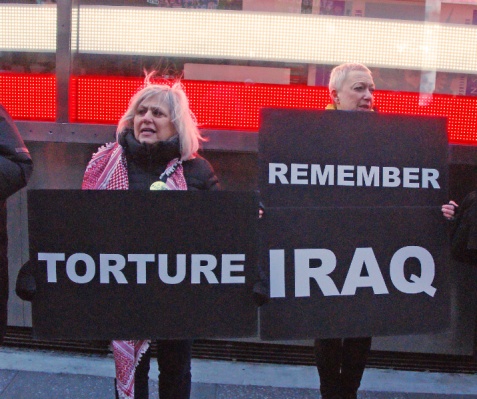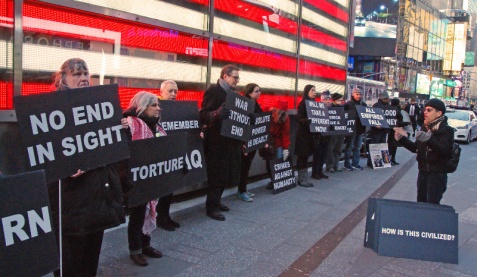desertpeace posted: "Commemorating the Nakba zion wants us to forget about it ... On the eve of an important event to discuss the Nakba* scheduled to take place this evening, the Executive Director of a tony uptown synagogue in New York City where the event was "
|
Sunday, March 22, 2015
Friday, March 20, 2015
ZARATHUSTRA -- Opening in German
I've always found Nietzsche's work rewarding. My first philosopher, the one I first read with any pleasure and reward was Arthur Schopenhauer, and he remains a great influence.
Nietzsche, however, has obviously had the most influence during the twentieth and twenty first Centuries and will continue to do so. This is despite the fact that most people discussing him have only heard about him and, of those who have read him, perhaps only one percent have ever read all of this work, and of them, perhaps only 40 percent have read him in the original
language. It is not surprising, then that he is so much misunderstood.
Without attempting to make more of the point (I have an article on the site about him that goes into some death), I am presenting the first few passages on the book, ending with the first statement on the death of God. The fact that the first person Zarathustra meets on
his way down from the mountain has not heard that God has died surprises him greatly. He thought everybody had hard about it.
L
Produced by Peter Bellen, derived from HTML files at
"Projekt Gutenberg - DE"
Erster Theil
Zarathustra's Vorrede.
1.
Als Zarathustra dreissig Jahr alt war, verliess er seine Heimat und
den See seiner Heimat und ging in das Gebirge. Hier genoss er seines
Geistes und seiner Einsamkeit und wurde dessen zehn Jahr nicht müde.
Endlich aber verwandelte sich sein Herz, - und eines Morgens stand
er mit der Morgenröthe auf, trat vor die Sonne hin und sprach zu ihr
also:
"Du grosses Gestirn! Was wäre dein Glück, wenn du nicht Die hättest,
welchen du leuchtest!
Zehn Jahre kamst du hier herauf zu meiner Höhle: du würdest deines
Lichtes und dieses Weges satt geworden sein, ohne mich, meinen Adler
und meine Schlange.
Aber wir warteten deiner an jedem Morgen, nahmen dir deinen Überfluss
ab und segneten dich dafür.
Siehe! Ich bin meiner Weisheit überdrüssig, wie die Biene, die
des Honigs zu viel gesammelt hat, ich bedarf der Hände, die sich
ausstrecken.
Ich möchte verschenken und austheilen, bis die Weisen unter den
Menschen wieder einmal ihrer Thorheit und die Armen einmal ihres
Reichthums froh geworden sind.
Dazu muss ich in die Tiefe steigen: wie du des Abends thust, wenn
du hinter das Meer gehst und noch der Unterwelt Licht bringst, du
überreiches Gestirn!
Ich muss, gleich dir, _untergehen_, wie die Menschen es nennen, zu
denen ich hinab will.
So segne mich denn, du ruhiges Auge, das ohne Neid auch ein
allzugrosses Glück sehen kann!
Segne den Becher, welcher überfliessen will, dass das Wasser golden aus
ihm fliesse und überallhin den Abglanz deiner Wonne trage!
Siehe! Dieser Becher will wieder leer werden, und Zarathustra will
wieder Mensch werden."
2.
Zarathustra stieg allein das Gebirge abwärts und Niemand begegnete
ihm. Als er aber in die Wälder kam, stand auf einmal ein Greis vor
ihm, der seine heilige Hütte verlassen hatte, um Wurzeln im Walde zu
suchen. Und also sprach der Greis zu Zarathustra:
Nicht fremd ist mir dieser Wanderer: vor manchem Jahre gieng er hier
vorbei. Zarathustra hiess er; aber er hat sich verwandelt. Damals
trugst du deine Asche zu Berge: willst du heute dein Feuer in die
Thäler tragen? Fürchtest du nicht des Brandstifters Strafen?
Ja, ich erkenne Zarathustra. Rein ist sein Auge, und an seinem Munde
birgt sich kein Ekel. Geht er nicht daher wie ein Tänzer?
Verwandelt ist Zarathustra, zum Kind ward Zarathustra, ein Erwachter
ist Zarathustra: was willst du nun bei den Schlafenden?
Wie im Meere lebtest du in der Einsamkeit, und das Meer trug dich.
Wehe, du willst an's Land steigen? Wehe, du willst deinen Leib wieder
selber schleppen?
Zarathustra antwortete: "Ich liebe die Menschen."
Warum, sagte der Heilige, gieng ich doch in den Wald und die Einöde?
War es nicht, weil ich die Menschen allzu sehr liebte?
Jetzt liebe ich Gott: die Menschen liebe ich nicht. Der Mensch ist mir
eine zu unvollkommene Sache. Liebe zum Menschen würde mich umbringen.
Zarathustra antwortete: "Was sprach ich von Liebe! Ich bringe den
Menschen ein Geschenk."
Gieb ihnen Nichts, sagte der Heilige. Nimm ihnen lieber Etwas ab und
trage es mit ihnen - das wird ihnen am wohlsten thun: wenn er dir nur
wohlthut!
Und willst du ihnen geben, so gieb nicht mehr, als ein Almosen, und
lass sie noch darum betteln!
"Nein, antwortete Zarathustra, ich gebe kein Almosen. Dazu bin ich
nicht arm genug."
Der Heilige lachte über Zarathustra und sprach also: So sieh zu, dass
sie deine Schätze annehmen! Sie sind misstrauisch gegen die Einsiedler
und glauben nicht, dass wir kommen, um zu schenken.
Unse Schritte klingen ihnen zu einsam durch die Gassen. Und wie wenn
sie Nachts in ihren Betten einen Mann gehen hören, lange bevor die
Sonne aufsteht, so fragen sie sich wohl: wohin will der Dieb?
Gehe nicht zu den Menschen und bleibe im Walde! Gehe lieber noch zu
den Thieren! Warum willst du nicht sein, wie ich, - ein Bär unter
Bären, ein Vogel unter Vögeln?
"Und was macht der Heilige im Walde?" fragte Zarathustra.
Der Heilige antwortete: Ich mache Lieder und singe sie, und wenn ich
Lieder mache, lache, weine und brumme ich: also lobe ich Gott.
Mit Singen, Weinen, Lachen und Brummen lobe ich den Gott, der mein
Gott ist. Doch was bringst du uns zum Geschenke?
Als Zarathustra diese Worte gehört hatte, grüsste er den Heiligen und
sprach: "Was hätte ich euch zu geben! Aber lasst mich schnell davon,
dass ich euch Nichts nehme!" - Und so trennten sie sich von einander,
der Greis und der Mann, lachend, gleichwie zwei Knaben lachen.
Als Zarathustra aber allein war, sprach er also zu seinem Herzen:
"Sollte es denn möglich sein! Dieser alte Heilige hat in seinem Walde
noch Nichts davon gehört, dass _Gott todt_ ist!" -
***
3.
Als Zarathustra in die Nächste Stadt kam, die an den Wäldern liegt,
fand er daselbst viel Volk versammelt auf dem Markte: denn es
war verheissen worden, das man einen Seiltänzer sehen solle. Und
Zarathustra sprach also zum Volke:
Ich lehre euch den Übermenschen. Der Mensch ist Etwas, das überwunden
werden soll. Was habt ihr gethan, ihn zu überwinden?
"Alle Wesen bisher schufen etwas über sich hinaus: und ihr wollt die
Ebbe dieser großen Flut sein und lieber noch zum Tiere zurückgehen, als
den Menschen zu überwinden?"
Was ist der Affe für den Menschen? Ein Gelächter oder eine
schmerzliche Scham. Und ebendas soll der Mensch für den Übermenschen
sein: ein Gelächter oder eine schmerzliche Scham.
Ihr habt den Weg vom Wurme zum Menschen gemacht, und Vieles ist in
euch noch Wurm. Einst wart ihr Affen, und auch jetzt ist der Mensch
mehr Affe, als irgend ein Affe.
Wer aber der Weiseste von euch ist, der ist auch nur ein Zwiespalt
und Zwitter von Pflanze und von Gespenst. Aber heisse ich euch zu
Gespenstern oder Pflanzen werden?
Seht, ich lehre euch den Übermenschen!
Der Übermensch ist der Sinn der Erde. Euer Wille sage: der Übermensch
_sei_ der Sinn der Erde!
Ich beschwöre euch, meine Brüder, _bleibt der Erde treu_ und glaubt
Denen nicht, welche euch von überirdischen Hoffnungen reden!
Giftmischer sind es, ob sie es wissen oder nicht.
Verächter des Lebens sind es, Absterbende und selber Vergiftete, deren
die Erde müde ist: so mögen sie dahinfahren!
Einst war der Frevel an Gott der grösste Frevel, aber Gott starb, und
damit auch diese Frevelhaften. An der Erde zu freveln ist jetzt das
Furchtbarste und die Eingeweide des Unerforschlichen höher zu achten,
als der Sinn der Erde!
Einst blickte die Seele verächtlich auf den Leib: und damals war diese
Verachtung das Höchste: - sie wollte ihn mager, grässlich, verhungert.
So dachte sie ihm und der Erde zu entschlüpfen.
Oh diese Seele war selbst noch mager, grässlich und verhungert: und
Grausamkeit war die Wollust dieser Seele!
Aber auch ihr noch, meine Brüder, sprecht mir: was kündet euer Leib
von eurer Seele? Ist eure Seele nicht Armuth und Schmutz und ein
erbärmliches Behagen?
Wahrlich, ein schmutziger Strom ist der Mensch. Man muss schon ein
Meer sein, um einen schmutzigen Strom aufnehmen zu können, ohne unrein
zu werden.
Seht, ich lehre euch den Übermenschen: der ist diess Meer, in ihm kann
eure grosse Verachtung untergehn.
Was ist das Grösste, das ihr erleben könnt? Das ist die Stunde der
grossen Verachtung. Die Stunde, in der euch auch euer Glück zum Ekel
wird und ebenso eure Vernunft und eure Tugend.
Die Stunde, wo ihr sagt: "Was liegt an meinem Glücke! Es ist Armuth
und Schmutz, und ein erbärmliches Behagen. Aber mein Glück sollte das
Dasein selber rechtfertigen!"
Die Stunde, wo ihr sagt: "Was liegt an meiner Vernunft! Begehrt sie
nach Wissen wie der Löwe nach seiner Nahrung? Sie ist Armuth und
Schmutz und ein erbärmliches Behagen!"
Die Stunde, wo ihr sagt: "Was liegt an meiner Tugend! Noch hat sie
mich nicht rasen gemacht. Wie müde bin ich meines Guten und meines
Bösen! Alles das ist Armuth und Schmutz und ein erbärmliches Behagen!"
Die Stunde, wo ihr sagt: "Was liegt an meiner Gerechtigkeit! Ich sehe
nicht, dass ich Gluth und Kohle wäre. Aber der Gerechte ist Gluth und
Kohle!"
-->
Thursday, March 19, 2015
Meaning of the Israeli Election
THE ABSURD TIMES
The Israeli Election
by
Zarathustra
ILLUSTRATION: We were just sent this. Seems Mizzou has joined forces with Zionism. There is a Zionist Presence there, but never this blatant. Any association with these forces should be disavowed. When Palestine was noticed on the poster, the History Museum cancelled the exhibit and discussion.
The virtue of the Israeli election is that the determination of Israel never to allow Palestinians the right to exist or be treated as equal beings. For the first time an Israeli Prime Minister has openly stated what we and many others have understood as fact: there is no intention of a two-state solution.
The second party, the one that was considered "Center-left," which in this country is like Lindsay Graham and John McCain, called itself the "Zionist Union". All this time people thought they were insulting Israelis by calling them Zionists and it becomes clear that they think this is a good idea, very liberal of them, don't you know?
An attempt was made to keep Arabs from even being in Parliament be requiring a higher percentage to qualify, and this led the four Arab Parties to merge into one and actually gain seats. The general view, held by both the Zionist left and the Zionist right is that Arabs are not to be given any consideration if such consideration would in any way reflect on the Jews being the "Chosen People".
Of course, in this country, there are still a number of religious morons who think that the Bible meant the USA when it said "Israel." These people are generally white baptists living in the states that Abraham Lincoln sent Ulysses Grant down to butcher. In other words, "Dixie". Jews tend to think of these people as beneath contempt.
Obama actually had enough backbone for once not to congratulate Nitwityahoo after he promised no two-state solution and thus won the election. It is even possible that the US will not vote against the rest of the world when the two-state idea comes up at the UN. If so, finally.
What else? Nothing, this has been our position for years now. Netanyahu simply confirmed and admitted it.
Some literate people are interviewed, give some suggestions:
WEDNESDAY, MARCH 18, 2015
After Netanyahu Wins Israel Vote with Racism & Vow of Permanent Occupation, How Will World Respond?
Israeli Prime Minister Benjamin Netanyahu has won a surprise election victory, putting him on course for a fourth term in office. Netanyahu’s Likud Party is poised to control 29 or 30 seats in the 120-member Knesset. The Zionist Union opposition placed second with 24 seats. A united list of Arab parties came in third with 13 seats. Netanyahu closed out his campaign with a vow to oppose a Palestinian state, reneging on his nominal endorsement of a two-state solution in 2009. Netanyahu also vowed to expand the illegal West Bank settlements and issued a last-minute plea to supporters denouncing a high turnout of Arab voters. The Zionist Union, Netanyahu’s chief rival, also ran on a platform for Israel to keep the major Israeli settlement blocs in the occupied West Bank, the home of any future Palestinian state. Likud says Netanyahu intends to form a new government in the coming weeks. Talks are already underway with a number of right-wing parties. To discuss the election, we are joined by two guests: Jamal Zahalka, an Arab member of the Israeli Knesset and chair of Balad party, which is part of the Joint List of Arab parties; and Amira Hass, correspondent for the Israeli newspaper Ha’aretz in the occupied Palestinian territories.
TRANSCRIPT
This is a rush transcript. Copy may not be in its final form.
JUAN GONZÁLEZ: We’re going to move on now to Israel, where Israeli Prime Minister Benjamin Netanyahu’s Likud party has won a surprise victory, putting him on a course for a fourth term in office. With 99.5 percent of the votes counted, Likud won 29 or 30 seats in the 120-member Knesset. The Zionist Union opposition placed second with 24 seats. A united list of Arab parties came in third. Exit polls had showed Likud and the Zionist Union in a close tie, but in the final days of the campaign, Netanyahu stressed his right-wing positions. He visited the Har Homa settlement and vowed to ramp up the construction of more settlements in occupied East Jerusalem. And he unequivocally ruled out allowing a Palestinian state, thus reneging on his nominal 2009 endorsement of a two-state solution. On Election Day, he railed against Israel’s Arab voters.
PRIME MINISTER BENJAMIN NETANYAHU: Right-wing rule is in danger. Arab voters are streaming in mass to the polling stations. Left-wing nonprofit organizations are bringing them in buses. Go out to the polling station, bring your friends and family, and vote Likud, in order to close the gap between us and the Labor Party. With your help and God’s help, we will form a national government and protect the state of Israel.
AMY GOODMAN: In a statement, Likud said Netanyahu intended to form a new government within weeks, with negotiations already underway with a number of parties, including the pro-settler Jewish Home party and ultra-Orthodox groups.
Isaac Herzog, the leader of the Zionist Union and the son of a former Israeli president, conceded defeat, saying he had called Netanyahu to congratulate him. The Zionist Union also ran on a platform for Israel to keep major settlement blocs in the occupied West Bank, keep Jerusalem as Israel’s "undivided" capital, and block the right of return for Palestinian refugees.
On Tuesday, Saeb Erekat, chief Palestinian negotiator, responded to the election results.
SAEB EREKAT: Well, I think there is also, the Israeli elections indicate business as usual. It seems to me that Mr. Netanyahu will form the next government in Israel. And we all heard what he said yesterday. He said if he is re-elected as the prime minister in Israel, Mr. Netanyahu said, he will not allow a Palestinian state. He will continue with settlement activities and dictations. I believe he was not campaigning in the elections. I believe he was honest, and he specified his truth. Mr. Netanyahu has done nothing in his political life but to destroy the two-state solution. And I believe now it’s up to the international community to stop treating this prime minister as a prime minister that’s above the laws of man. And he should be held accountable. And he should—the international community should not cover him or give him impunity. Impunity will mean more conflict, more complicities, and it will not make peace. Justice will make peace.
AMY GOODMAN: Palestinian negotiator Saeb Erekat.
To talk more about the Israeli election, we’re joined by two guests. Joining us from Tel Aviv, Jamal Zahalka, he is an Arab member of the Israeli Knesset, chair of the political bloc of Arab parties known as the Joint List, which took third place in Tuesday’s election, winning 13 seats. He has served as a member of the Knesset since 2003. Here in New York, we’re joined by the Israeli journalist Amira Hass, correspondent for the Israeli newspaper Ha’aretz in the occupied Palestinian territories. She’s based in Ramallah. She’s the only Israeli Jewish journalist to have spent more than 20 years living in and reporting from Gaza and the West Bank. Her book, Diary of Bergen-Belsen: 1944-1945, written by her mother, Hanna Lévy-Hass, with her own afterword and introduction, is also just out in paperback this week.
We welcome you both to Democracy Now! Let’s begin with you, Amira Hass. Your reaction? Would you call this a surprise victory of—
AMIRA HASS: Not at all, not at all. The whole campaign was not about the real issues of war, of occupation, of Israeli continued colonization. The cosmetic differences between the Labor, which is now called the Zionist Alliance or the Zionist Camp, and Likud were minor, did not attract people’s real enthusiasm. What Netanyahu has been offering for the past years continues to be a winning horse for most of the people. That means the nonexistent welfare state in Israel proper now exists by the occupied territory in the forms of colonies, well-pampered colonies, so it is always an option for Israelis to move to the occupied territory to improve their conditions. Inside Israel, his policies guarantee that there will be continued the discriminated—the policy which discriminates Palestinians, Israeli citizens, from their—against the Israeli Jews. With a combination of support of the right-wing parties—of the religious parties, I think his position was guaranteed. The change would have been only in the puzzle—I mean, if he would get 28 seats and not 30 seats. So, for me, I didn’t expect much more.
And when people say that it is because he promised now not to have a Palestinian state, to do everything against a Palestinian state, his actions have done everything possible to prevent this from happening anyway. So it’s not about statements that the people fall to. I mean, it’s the reality that he’s established for the past—and not only he, other parties as well. So it’s not about the last-moment statements, I think, that—what guaranteed his position. Labor—anyway, the two-state solution that people, that other parties, like the Labor Party, advocate, I call it the 10-state solution or the seven-, eight- solutions, which doesn’t see Gaza in a Palestinian state, and the Palestinian state itself is a bunch of bantustans inside the West Bank.
JUAN GONZÁLEZ: And what about the impact on the international community of Netanyahu’s last-minute veering even more to the right on many of these issues and his attacks on Arab citizens within Israel?
AMIRA HASS: Yeah, sure, sure.
JUAN GONZÁLEZ: What’s going to be the long-term impact.
AMIRA HASS: This has to be seen, because, I mean, we always expect, you know—we feel that each, every time Israel is crossing a red line, and now is the moment for the world to react, and there it doesn’t react, the world. So still we want to see it reacting. We thought that the war on Gaza was a red line that was crossed again, and good relationships with Europe, with America continue. So, of course, we want to hope that something will change, and not only among rank-and-file and grassroots levels, but also among the political echelons in their decisions. But so far, as long as Israel is considered part of the enlightened, democratic West, and Israelis are welcome, and Israeli support teams are welcome everywhere in the world, and scientists, etc., Israel is seen as part of this world.
AMY GOODMAN: We’re going to go to break, and when we come back, we’ll go to Tel Aviv, as well, to get response from Dr. Jamal Zahalka, who is a Knesset member for more than a decade and chair of the Joint List. This is Democracy Now! We’ll be back in a minute.
[break]
AMY GOODMAN: Our guests are the award-winning Israeli journalist Amira Hass, who is a correspondent for Ha’aretz, lives in the Occupied Territories, and we’re joined in Tel Aviv by Dr. Jamal Zahalka, Arab member of the Israeli Knesset. He is chair of the Balad party, which is a part of the Joint List of Arab parties, joining us from Tel Aviv.
Doctor, you’re an MK, I guess you’re called in Israel, member of the Knesset. Dr. Zahalka, your response to the win of Netanyahu, who has vowed there will be no Palestinian state and went after Arab voters yesterday, saying if he lost, it would become—it would be because of, well, I guess, people like you?
DR. JAMAL ZAHALKA: First of all, we are proud of the achievement of our Joint List. We are four parties, and we won—more than 30 percent more voters voted for us. Mr. Netanyahu winning the Israeli elections is a very, very, very bad message to everybody, to everywhere, because he implemented war crimes in Gaza, and he should be punished. Now he’s become Israeli hero. So I think this is why, because the world watched him and did nothing. Men like him should be sentenced in an international tribunal. He killed more than 2,000 Palestinians. I think this is the main thing in the Israeli elections, meanwhile. Politically, no change in Israel, and Netanyahu is continuing with the same policies.
JUAN GONZÁLEZ: And what about the impact of the growth on the Joint List vote? Most Americans are not aware that the Arab population of Israel is 20 percent. That’s a higher percentage than the African-American population of the United States. And what about the impact for the future in Israel of the growth of the Palestinian and Arab vote of citizens of Israel?
DR. JAMAL ZAHALKA: We are stronger now, and we can defend better our people and our interests, our lands, our rights, and oppose rising Israeli racism and their policies, especially those of Mr. Netanyahu himself. He did yesterday something which I don’t—I don’t think that any prime minister in the world did: He said that voting of some citizens is a danger. Instead of encouraging the citizens to go to vote, he said that Arabs are voting, and it’s danger for us. This is something, I think, clarify that Mr. Netanyahu is anti-democrat and racist, mainly.
AMY GOODMAN: This is one of the videos, produced by the Joint List, that features a variety of Israeli voters explaining why they support it.
JOINT LIST SUPPORTER 1: [translated] I’m voting for the Joint List as a Jew, because I think that it’s the only democratic option.
JOINT LIST SUPPORTER 2: [translated] The hesitaters need to look inward and ask themselves what they’re afraid of.
JOINT LIST SUPPORTER 3: [translated] Because I’m sure you want to live in a state of social justice and equality.
JOINT LIST SUPPORTER 4: [translated] I feel totally confident and comfortable, as a Mizrahi Jewish feminist, to vote for the Joint List.
JOINT LIST SUPPORTER 5: [translated] The Joint List represents me, as a half-Palestinian, half-Jewish girl living here.
JOINT LIST SUPPORTER 6: [translated] It’s the first time that I feel I’m going to vote wholeheartedly.
JOINT LIST SUPPORTER 7: [translated] It’s the only list that represents both of us.
JOINT LIST SUPPORTER 8: [translated] The Joint List is my political home.
JOINT LIST SUPPORTER 7: [translated] Nice!
AMY GOODMAN: One of the videos produced by the Joint List. Dr. Zahalka, can you explain what the Joint List is, what are the parties that make it up, and how you came into being?
DR. JAMAL ZAHALKA: You know, the Joint List is comprised of four parties: Hadash, which is communist and that allies its binational party, Jews and Arabs; and Balad, my party, is a democratic national party; and the moderate Islamic Movement; and the Arab Movement for Change. And I think that we became a major force in the Knesset by joining together. And we also have many Jews who are supporting us. And because we have also—they support us as act of solidarity with oppressed people, first of all, and also because we have a democratic platform, the only democratic platform in the Israeli Knesset, based on the state for all its citizens, not state who belong to one group of the citizens, namely a Jewish state.
AMY GOODMAN: During an interview with a website owned by U.S. casino magnate Sheldon Adelson, one of his leading backers, the prime minister, Netanyahu, unequivocally vowed never to allow a Palestinian state if he’s re-elected.
PRIME MINISTER BENJAMIN NETANYAHU: [translated] I think that whoever moves to establish a Palestinian state or intends to withdraw from territory is simply yielding territory for radical Islamic terrorist attacks against Israel. This is a genuine reality that was created here in the past few years. Those who do not understand that bury their heads in the sand. The left-wing parties do it, bury their heads in the sand, time and again.
AMY GOODMAN: So, Amira Hass, talk about the significance of this and also of the growth of the Joint List. Is this a new development in Israeli politics?
AMIRA HASS: As I said before, what Netanyahu said now in an interview to an American, probably he says now he’s more frank than he was four years ago, five years ago, three years ago, but, again, his actions have been always directed to preventing a Palestinian state from being established. But he was not unique in that sense. I mean, the whole trend in the past 20 years of—also of Labor-led coalitions and Labor-led governments, all was channeled to this reality, that the two-state solution seems almost impossible, at least in the sense that we saw the two-state solution—Gaza, West Bank, '67 border, East Jerusalem the capital, and no settlements. I mean, now, when they talk about the Palestinian—some kind of a strange configuration of a Palestinian state in the West Bank, which is an agglomeration of some islands in the ocean of Israeli-controlled area, I mean, this is a joke. This is not really two states. So, I don't attribute, personally—maybe I’m wrong, but I don’t attribute too much importance to this statement, only that he—maybe he’s defying more the American audience, who likes to hear, or the American politicians, who like to hear that—"Oh, since also even Netanyahu is for the two-state solution, let’s continue and support him." Maybe it’s a sort of defiance, stretching a bit more this edge or pushing the edge a little bit more. I tend to believe that also this will pass quietly, but I hope to be wrong. But...
Now, the List, of course, I think it’s one of the—it’s the only positive thing about these elections, the Joint List. First of all, because it was—you know, that, actually, it was a reaction to the Knesset bill to higher—to increase the threshold for these elections, so not three votes, not three seats in the Parliament, but four seats in the Parliament, so that you should get as many votes as—I mean, up to four seats, minimum, in the Parliament, which meant that some of the parties were in danger not to be elected, some of the Arab parties, of the four. And this made—this brought to the decision to unite forces, even though there are big differences between the different parties and animosities, you know, that exist, because, OK, they are all Arabs, but they are also—they also have different convictions and different viewpoints. But still, we thought—many of us, both Palestinians, citizens of Israel, and Israeli Jews—we felt that because it is the most targeted community in Israel, targeted against, because the threshold build meant to eliminate them, or almost eliminate them, from political presence, from parliamentary presence—and, by the way, it was the—Avigdor Lieberman suggested it, and it went through, and some of the so-called mainstream parties voted also in favor. So this was a defiance of the Israeli right-wing wish to oust them from political presence. And this is why—this is why this is already a victory. If there are 13 seats or 14 seats, which are two or three more than it used to be together, altogether, in the past elections, then it’s already a sense of achievement—I won’t say victory, but a real achievement, that can also—of course, as being the third strong party in the Parliament, it gives them certain position within the committees of the Parliament. But the best thing for me is the message to the Palestinians in Israel and also in the West Bank and Gaza, that some changes in internal politics can create a change of other effects.
JUAN GONZÁLEZ: I wanted to ask you, in the lead-up to the elections, a lot of the coverage here in the United States talked about the growth of the economic issues—
AMIRA HASS: Yeah.
JUAN GONZÁLEZ: —in the Israeli electorate, and not so much the issue of the occupation.
AMIRA HASS: That’s right.
JUAN GONZÁLEZ: But in the end, it really was the occupation that drove so much of the vote for Netanyahu, don’t you think? I mean, did the economic issues fade?
AMIRA HASS: The feeling that there is nothing to change about the occupation, this is good. I mean, people approve. Voting for Netanyahu is an approval of—a re-approval of his policies: to keep the occupation going; to call it—I don’t know what to call it, to name it—to call Gaza a state, a separate state; to have wars every now and then; to repress the Palestinians. This is a vote for confidence, an Israeli vote of confidence for these policies, and which says that, yeah, it is—it is always a mystery how a population that is not rich, the Israeli Jewish—not everybody is rich, not everybody benefits from the plutarchy that Netanyahu has created over those years, on the contrary—still they vote for the nationalist option. But it works. At the end, it works, because we are still—still, we are better off. We benefit from the occupation, as we see it now. I mean Israelis. We benefit from the occupation, when it comes to water, when it comes to land, distribution of land also in Israel proper, when it comes to always having an option to go and move into the occupied territory. There are about—there are more than half a million Jews who live in the occupied territory—I mean, both in East Jerusalem and in the West Bank—and in conditions so much better, that they could never afford in Israel proper. Half a million is a lot, is not something to dismiss.
AMY GOODMAN: I wanted to ask Dr. Jamal Zahalka about the foreign minister, Netanyahu’s foreign minister, Avigdor Lieberman, who recently made headlines after calling for the beheading of disloyal Arab-Israeli citizens, prompting critics to label him "the Jewish ISIS." Your response to Mr. Lieberman?
DR. JAMAL ZAHALKA: Mr. Lieberman is a racist, and being the foreign minister of Israel reflects the change in Israel, and that racism is not in the margin, but it’s the mainstream of Israeli politics. The fact that capitals in Europe and in America received him and they respect a racist character like him, racist man like him, I think it’s a very bad message to Palestinians as a whole and Palestinian citizens of Israel: "We don’t care about you. He can—he’s racist against Arabs, not against Jews, so he should be forgiven." That’s what—otherwise, he shouldn’t be a guest in Paris and London and Berlin and Rome and Washington.
I think the world should intervene what happen—in what’s happening in our country. And I think the world should force a solution. The Israel is not right for any solution, kind of solution. And the only way to end the bloodshed is that the world intervene and force—have a force—force solution over everybody, according to the U.N. resolutions.
AMY GOODMAN: How can you, as an Arab Israeli—what difference can Arab parties make in the Israeli Knesset?
DR. JAMAL ZAHALKA: We struggle for our rights and defending our land. And we use the Knesset for that. So now we will be represented in more committees, and we will have more votes in the Knesset. And the world will change its policies toward us. I met European embassies, and everybody came, and they were very interested in our List. And now they are not dealing with us as partners, but rather as representatives of our community. This is very important, according to the world. And every establishment in Israel would be forced to do that for us—with us also. So now we are not one party or four parties united, but rather representatives of our community in the Knesset.
AMY GOODMAN: I was just speaking to a young Palestinian activist. She couldn’t vote—
AMIRA HASS: No.
AMY GOODMAN: —in the Israeli elections. She lives in the Occupied Territories. But she said she really—if she could vote, she would have voted for Netanyahu, because she said he states it exactly as it is.
AMIRA HASS: Yeah.
AMY GOODMAN: The other parties may soft-pedal it, but at least the world understands what’s happening.
AMIRA HASS: Yes, there is such a theory, which, of course, you know, it’s—we all know that he speaks frankly what maybe the Labor Party is saying more softly. But when it comes to policies, there hasn’t been much of a difference. There is still—with age, I come to appreciate also the danger of being in the worst—choosing for the worst situations, because when it’s worse, it’s worse. And sometimes if he might bring his bullies to be in ministries and in the army and in all kind of deciding stations in the body politic, which can push to brutalization which is not reversible. This is what I fear. It is not—it is not that I think that Labor would have made a change. Of course not. I mean, it’s not—I never thought of voting for them. But the brutalization that the presence of very right-wing parties in a coalition, this brutalization is very dangerous for both people. So sometimes it might be healthier or wiser to wait a bit more and to change one’s—also one’s tactics than to opt for the worst solution. I mean, that’s my—
But the right wing, the extreme right wing in Israel, I mean, the real—the most racist party of all, and the really dangerously racist party, Yachad, I think they’re named together, which is a combination of very, very—how would I say?—retarded religious party with the extreme nationalist religious groups, didn’t pass the threshold. Though we still have to wait for the soldiers’ votes. They are counted a day or two days later, and usually they strengthen the right wing. So we have to wait for the soldiers.
I wanted to add that one of the things that really warmed our hearts—I mean, I would say left wing, and even some of the Israeli press—is that the Joint List, Arab List, also presented that they—true, as Jamal said, representing the Palestinian community in Israel, but they also want to represent and to fight for the rights of other weakened groups in the Israeli society, which means also Jews, so to fight for social justice for all, and, of course, coming out from their position as representatives of the Palestinian community in Israel. But this is something that was—it showed how they are so much more enlightened than any of the other Israeli Jewish parties.
AMY GOODMAN: We’re going to leave it there. I want to thank you both for being with us. Amira Hass is a longtime Israeli journalist, has lived in the Occupied Territories for more than 20 years, award-winning journalist with Ha’aretznewspaper. Her mother’s book has just come out in paperback, Diary of Bergen-Belsen: 1944-1945, by Hanna Lévy-Hass, with a foreword and afterword by Amira Hass. We also want to thank our guest in Tel Aviv, Dr. Jamal Zahalka, Arab member of the Israeli Knesset, chair of the Balad party, which is a part of the Joint List of Arab parties.
This is Democracy Now!
 The original content of this program is licensed under a Creative Commons Attribution-Noncommercial-No Derivative Works 3.0 United States License. Please attribute legal copies of this work to democracynow.org. Some of the work(s) that this program incorporates, however, may be separately licensed. For further information or additional permissions, contact us.
The original content of this program is licensed under a Creative Commons Attribution-Noncommercial-No Derivative Works 3.0 United States License. Please attribute legal copies of this work to democracynow.org. Some of the work(s) that this program incorporates, however, may be separately licensed. For further information or additional permissions, contact us.
Subscribe to:
Posts (Atom)





